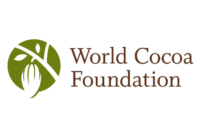The Ivorian Fair Trade Network is advocating for fair prices for producers following a cocoa price reduction.
The network, which represents cocoa producers, also is calling for a commitment to the Living Income Differential for farmers. The LID is a new pricing structure for cocoa created with an agreement between Ghana and Ivory Coast and it requires all companies buying cocoa from either of the two countries to pay more per ton above the market selling price. It went into effect for the 2020/21 season.
The Ivorian Fair Trade Network — which held a press conference regarding the issue on April 23, 2021 — also highlighted other matters relating to EU bilateral trade agreements between Ghana and Cote d’Ivoire for cocoa. About 60 percent of the world’s cocoa comes from Ghana and Cote d’Ivoire in Africa.
In a statement read on behalf of the Ivorian Fair Trade Network, Vice President Fortin Bley emphasized that farmers welcomed the LID when it was announced in 2019.
However, the recent announcement by the Ivorian government of the reduction in the minimum guaranteed farm gate price for cocoa for the intermediate campaign from April 1 to September 30, 2021, is concerning. Bley made an appeal to the government to consider the payment of profitable prices to farmers to enable the sustainable production of cocoa.
According to the Café Cacao Council, this drop in price is due to the COVID-19 pandemic which caused a global economic crisis, which had a big impact on chocolate consumption in general.
“We wish to express our disappointment with the current farm gate price level, which has fallen by 25 percent compared to that of the major 2020/2021 crop season,” the statement said with a final call to all relevant actors within the value chain to, “commit to guaranteeing decent prices for cocoa farmers.”
The statement also made a call to the European Union to require companies that put cocoa or chocolate products on the European Union market to ensure that the cocoa farmers within the supply chain are able to progress toward a living income, as part of the human rights and environmental rights due diligence regulations to be proposed in the European Union.
Specifically, the European Union, the main buyer of Ivorian cocoa, is currently studying the possibility of concluding bilateral agreements with the governments of Ghana and Côte d'Ivoire in order to ensure the sustainability of the cocoa sector — in particular by fighting against deforestation, farmer poverty, and child labor.
In addition, new laws on the importation of cocoa into Europe are being drafted, including:
- A law that will require European companies to ensure that all the agricultural products they buy are not a source of deforestation and forest degradation.
- A second law that will require companies in Europe to conduct “HRDD” or human rights due diligence in order to identify and address human rights violations in the products they buy.







